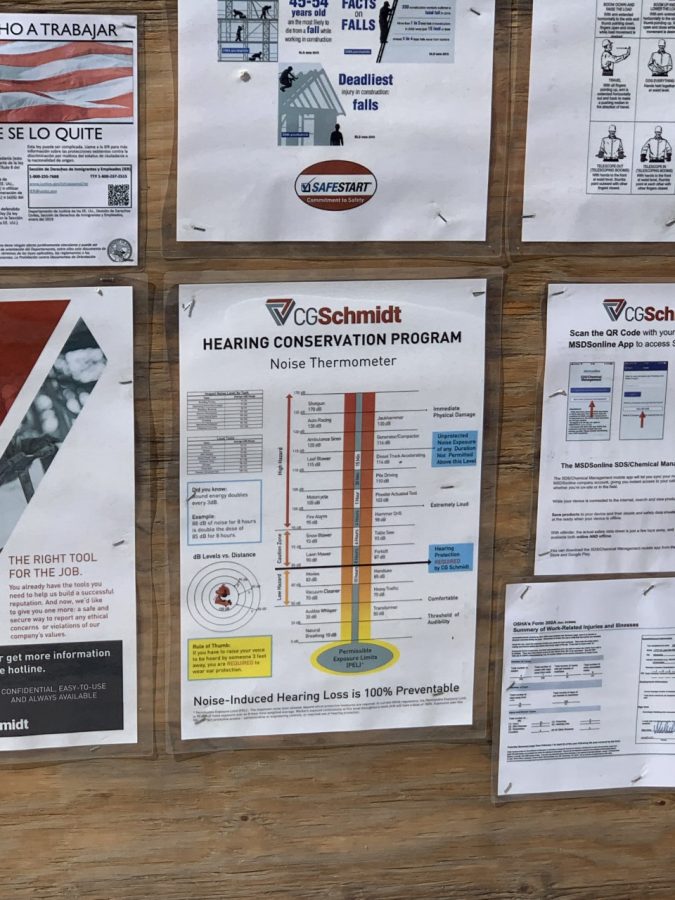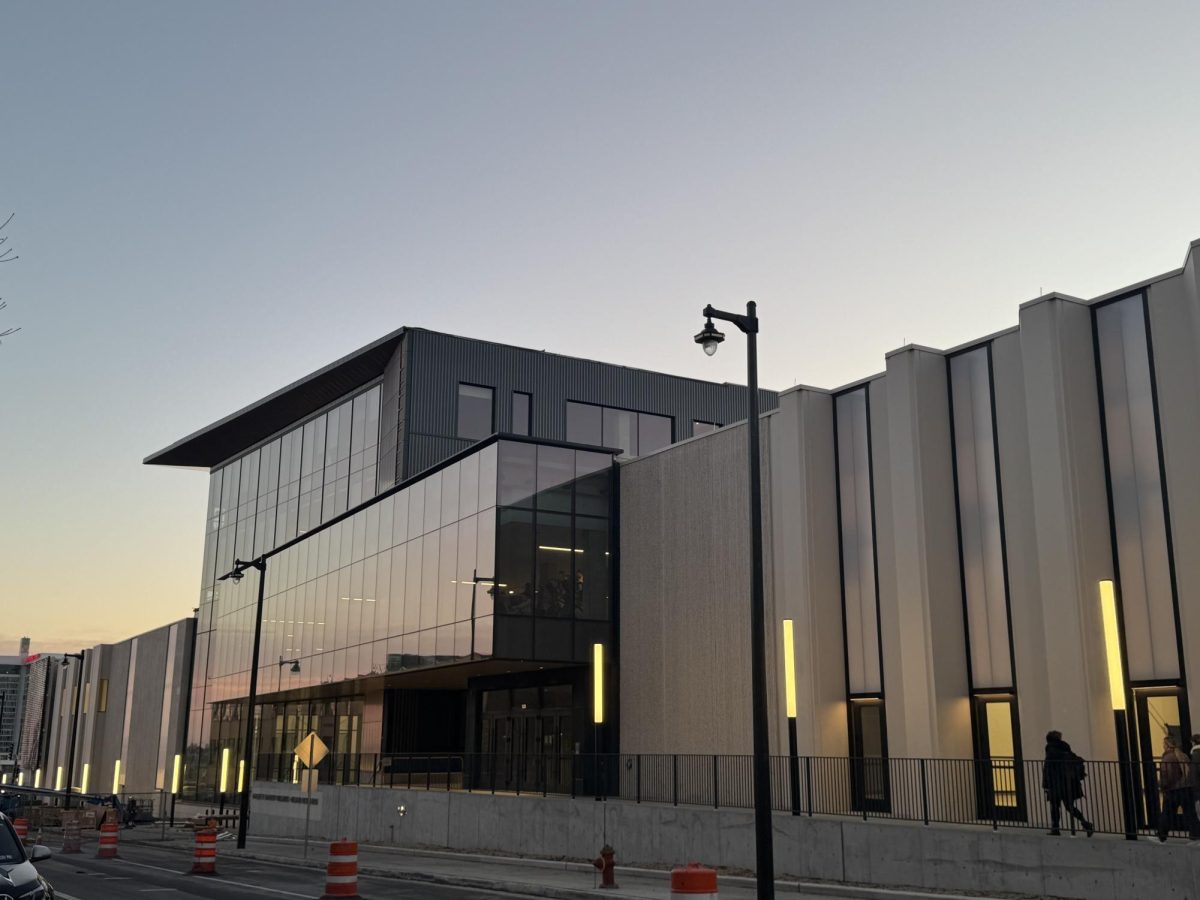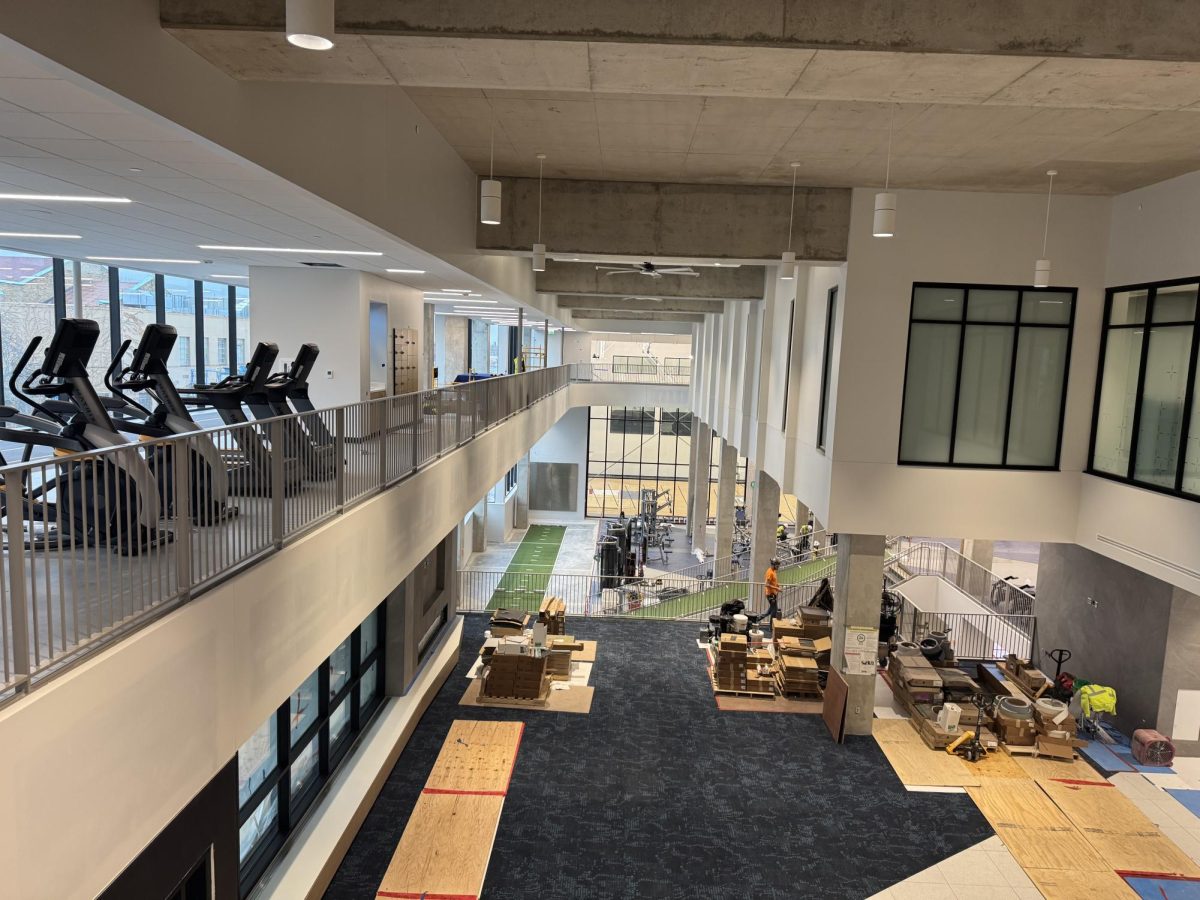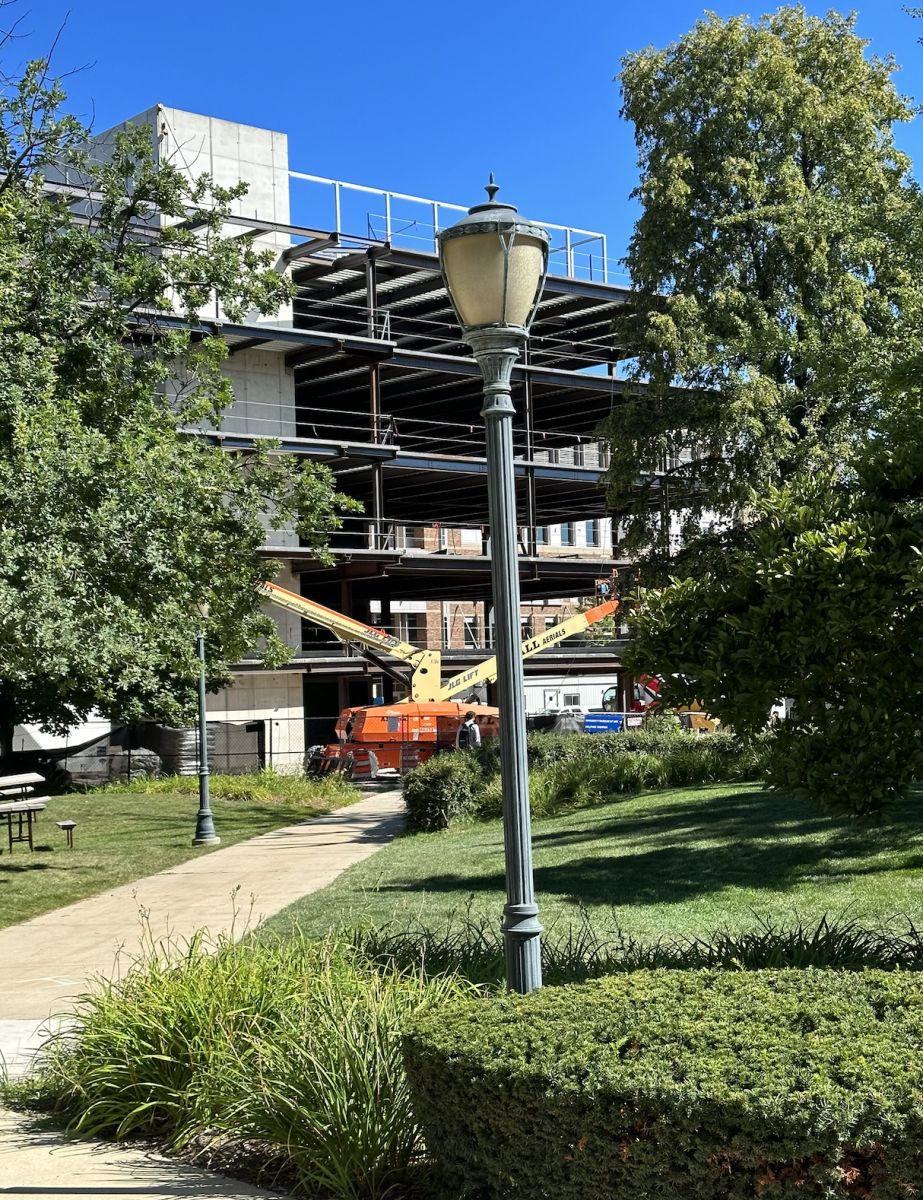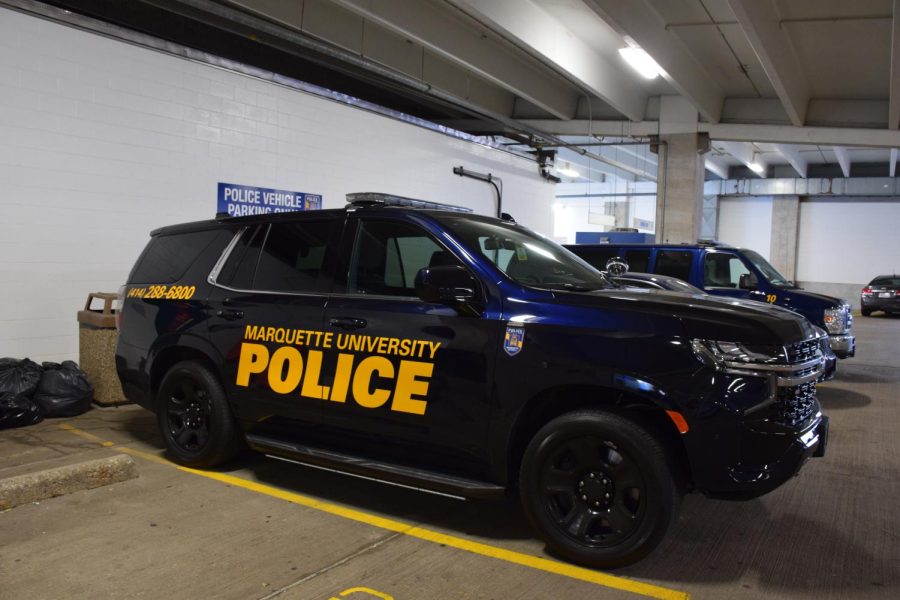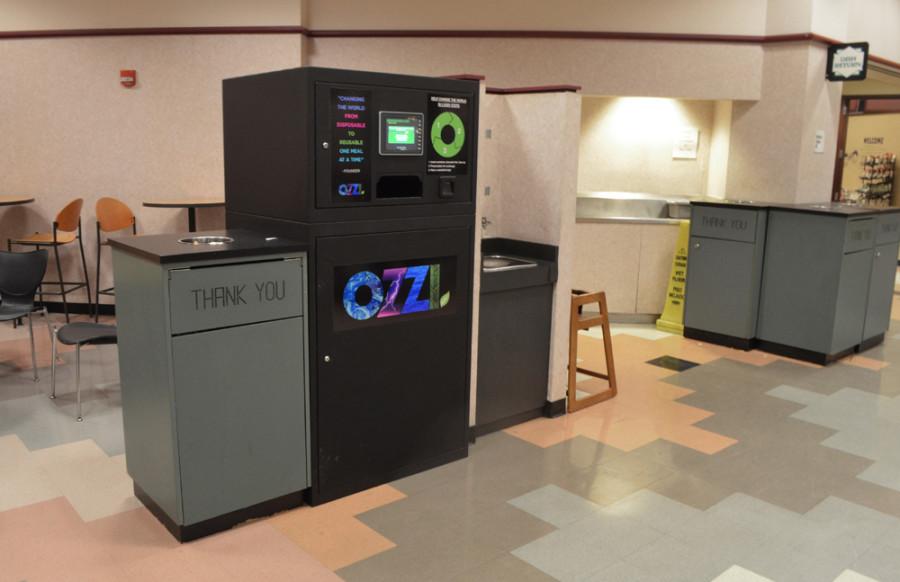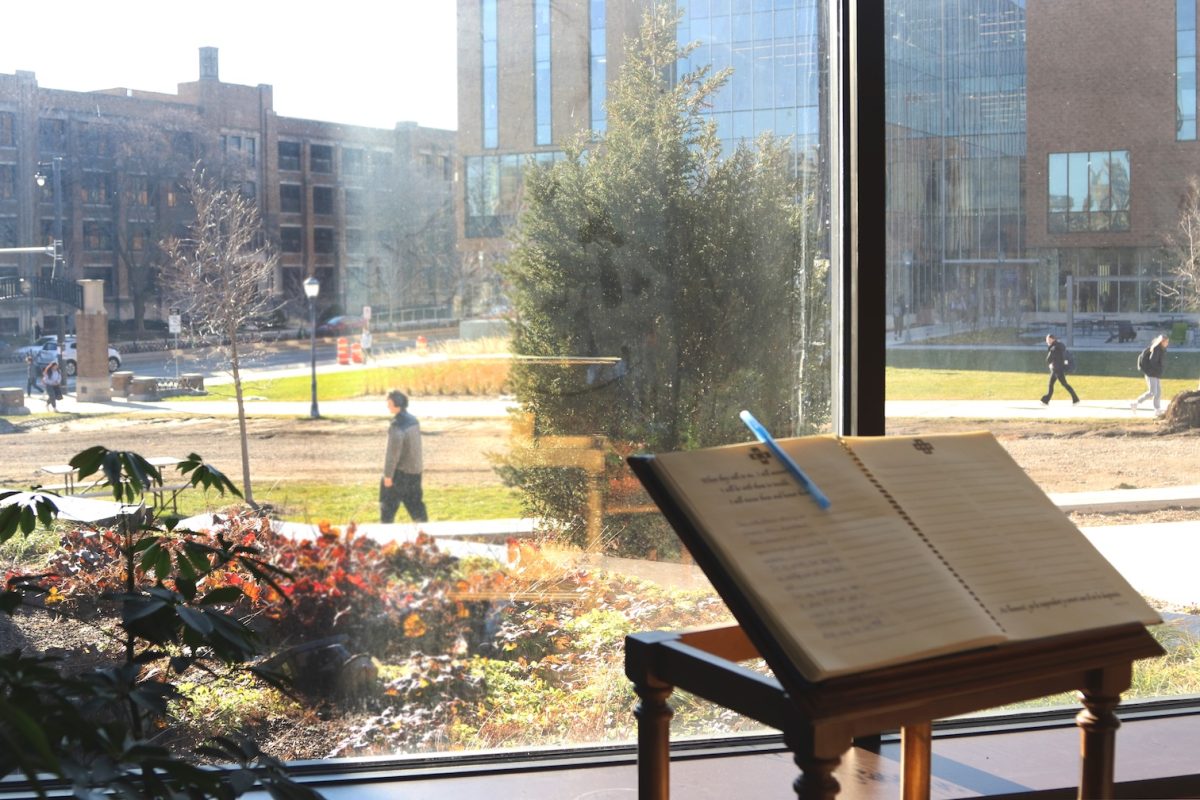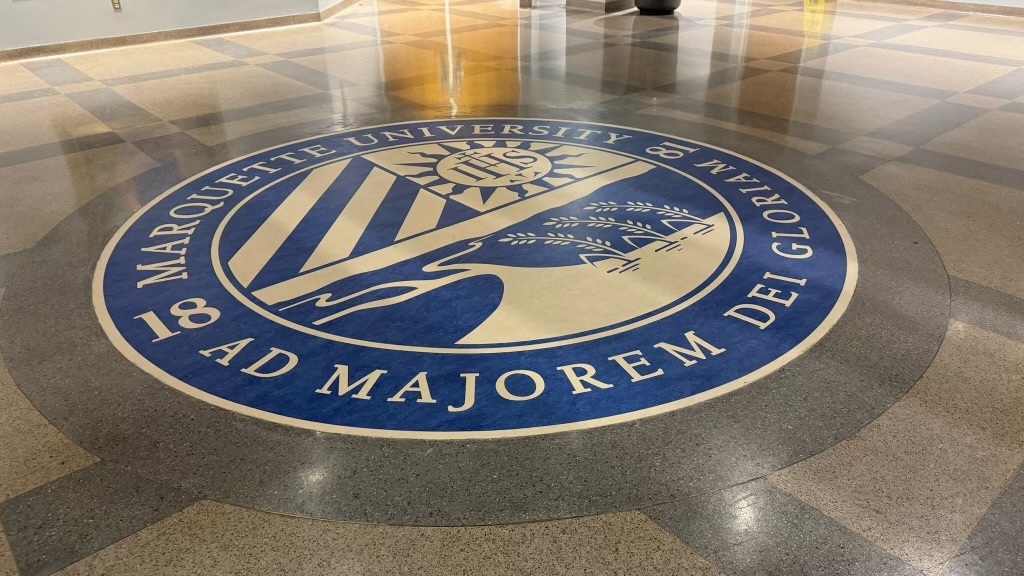The harsh sounds of construction are nearly unavoidable on Marquette’s campus this semester. In addition to the usual loud engines and sirens of firetrucks, police cars and traffic, Marquette students and the surrounding Milwaukee communities have to deal with beeping and drilling while going about our days from construction sites on campus around the St. Joan of Arc Chapel and outside the Alumni Memorial Union where the new College of Business Administration building is being constructed.
As much as this seems like a trivial issue, loud, disruptive noise can be detrimental to the health of a community.
Noise pollution is an invisible yet very harmful form of pollution. According to the Environmental Pollutant Centers, noise pollution is any disruptive man-made noise that impacts the health of wildlife and people.
According to the Centers for Disease Control and Prevention, prolonged exposure to noises above 70 decibels can harm hearing, and sounds above 120 decibels will immediately and permanently harm one’s hearing. A typical conversation is typically 60 decibels, but something as common as a power lawnmower can reach up to 90 decibels. Common construction tools like cranes, bulldozers and saws typically reach over 75 decibels, with some tools reaching up to 112 decibels. This is not only an issue for workers if they do not use protective gear, but also for citizens who experience these noise levels day to day.
Noise pollution not only affects our hearing but also our mental state. In a 1998 study from Cornell University, researchers studied the effects of a new airport on third- and fourth-graders near Munich, Germany. The children living in areas deemed “noisy” had higher levels of stress hormones and higher blood pressure after 18 months compared to the children who were not in noisy areas. Although the changes were moderate, they were still significant enough to cause concern among scientists over noise pollution.
Students already experience high levels of stress on college campuses, and noise pollution can exacerbate that stress. According to the American Institute of Stress, eight in 10 college students report feeling stressed on a regular basis, typically from academics. Additionally, students don’t need the added stress of noise pollution during an ongoing pandemic that has affected 95% of college students’ mental health.
What makes this situation even more stressful is that there is little students can do about it. We do not have say in what buildings Marquette decides to update or build, which needs to change. The new business school has already come under criticism for using resources that could have been put towards other improvements on campus like updating existing buildings, as well as disrupting the surrounding community, such as removing a bus stop awning on the corner of 16th Street and Wisconsin Avenue that was used by Milwaukee residents.
Noise pollution is sometimes a necessary evil in the case of infrastructure improvements like road paving and building updates. However, Marquette should not be continuing construction of the new business school building right now. The stress noise pollution causes may have been worth it if the administration went with its original plan of building a student wellness and recreation center where the new business school building will be that all Marquette students could have benefited from.
Although some construction projects may be unavoidable, the university should make efforts to consider students’ health and well-being when planning their construction schedules. Additionally, Marquette should consider getting student input on potential construction projects, as well as considering how projects will impact the surrounding Milwaukee communities, rather than solely appealing to the interests of donors.
Marquette should keep in mind the experience of current Marquette students, rather than heavily prioritizing the experience of prospective and future students.
This story was written by Jenna Koch. She can be reached at jenna.koch@marquette.edu

